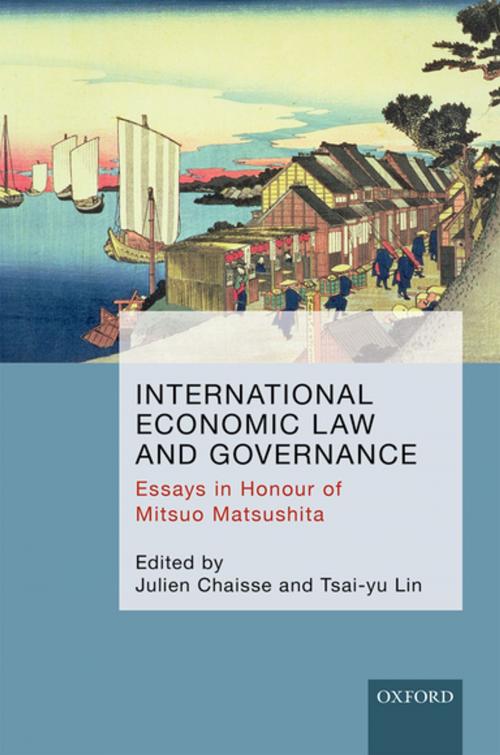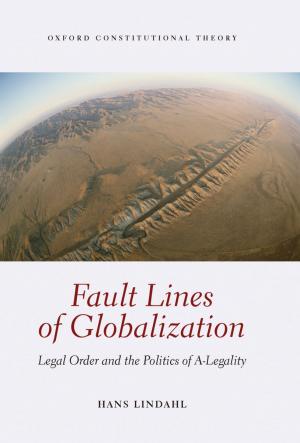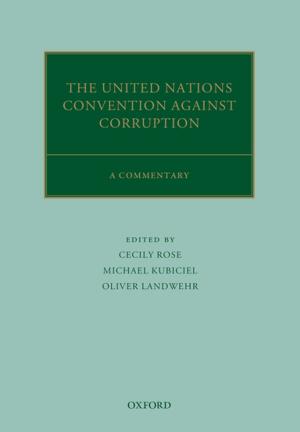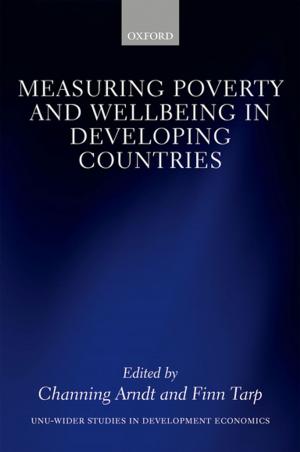International Economic Law and Governance
Essays in Honour of Mitsuo Matsushita
Nonfiction, Reference & Language, Law, International, Social & Cultural Studies, Political Science| Author: | ISBN: | 9780191084133 | |
| Publisher: | OUP Oxford | Publication: | August 11, 2016 |
| Imprint: | OUP Oxford | Language: | English |
| Author: | |
| ISBN: | 9780191084133 |
| Publisher: | OUP Oxford |
| Publication: | August 11, 2016 |
| Imprint: | OUP Oxford |
| Language: | English |
Nation states have long and successfully claimed to be the proper and sovereign forum for determining a country's international economic policies. Increasingly, however, supranational and non-governmental actors are moving to the front of the stage. New forms of multilateral and global policy-making have emerged, including states and national administrations, key international organizations, international conferences, multinational enterprises, and a wide range of transnational pressure groups and NGOs that all claim their share in exercising power and influence on international and domestic policy-making. In honour of Professor Mitsuo Matsushita's intellectual contributions to the field of international economic law, this volume reflects on the current state and the future of international economic law. The book addresses a broad spectrum of themes in contemporary international economic regulations and focuses specifically on the significant areas of Professor Matsushita's scholarship, including the rise of the soft-law mechanism in international economic regulation, the role of the WTO and dispute settlement, and specific areas such as competition, subsidies, anti-dumping, intellectual property, and natural resources. Part one of the volume provides a comprehensive and critical analysis of the rule-based international dispute settlement mechanisms; Part two investigates the normative influences to and from WTO law; and Part three focuses on policy and law-making issues.
Nation states have long and successfully claimed to be the proper and sovereign forum for determining a country's international economic policies. Increasingly, however, supranational and non-governmental actors are moving to the front of the stage. New forms of multilateral and global policy-making have emerged, including states and national administrations, key international organizations, international conferences, multinational enterprises, and a wide range of transnational pressure groups and NGOs that all claim their share in exercising power and influence on international and domestic policy-making. In honour of Professor Mitsuo Matsushita's intellectual contributions to the field of international economic law, this volume reflects on the current state and the future of international economic law. The book addresses a broad spectrum of themes in contemporary international economic regulations and focuses specifically on the significant areas of Professor Matsushita's scholarship, including the rise of the soft-law mechanism in international economic regulation, the role of the WTO and dispute settlement, and specific areas such as competition, subsidies, anti-dumping, intellectual property, and natural resources. Part one of the volume provides a comprehensive and critical analysis of the rule-based international dispute settlement mechanisms; Part two investigates the normative influences to and from WTO law; and Part three focuses on policy and law-making issues.















